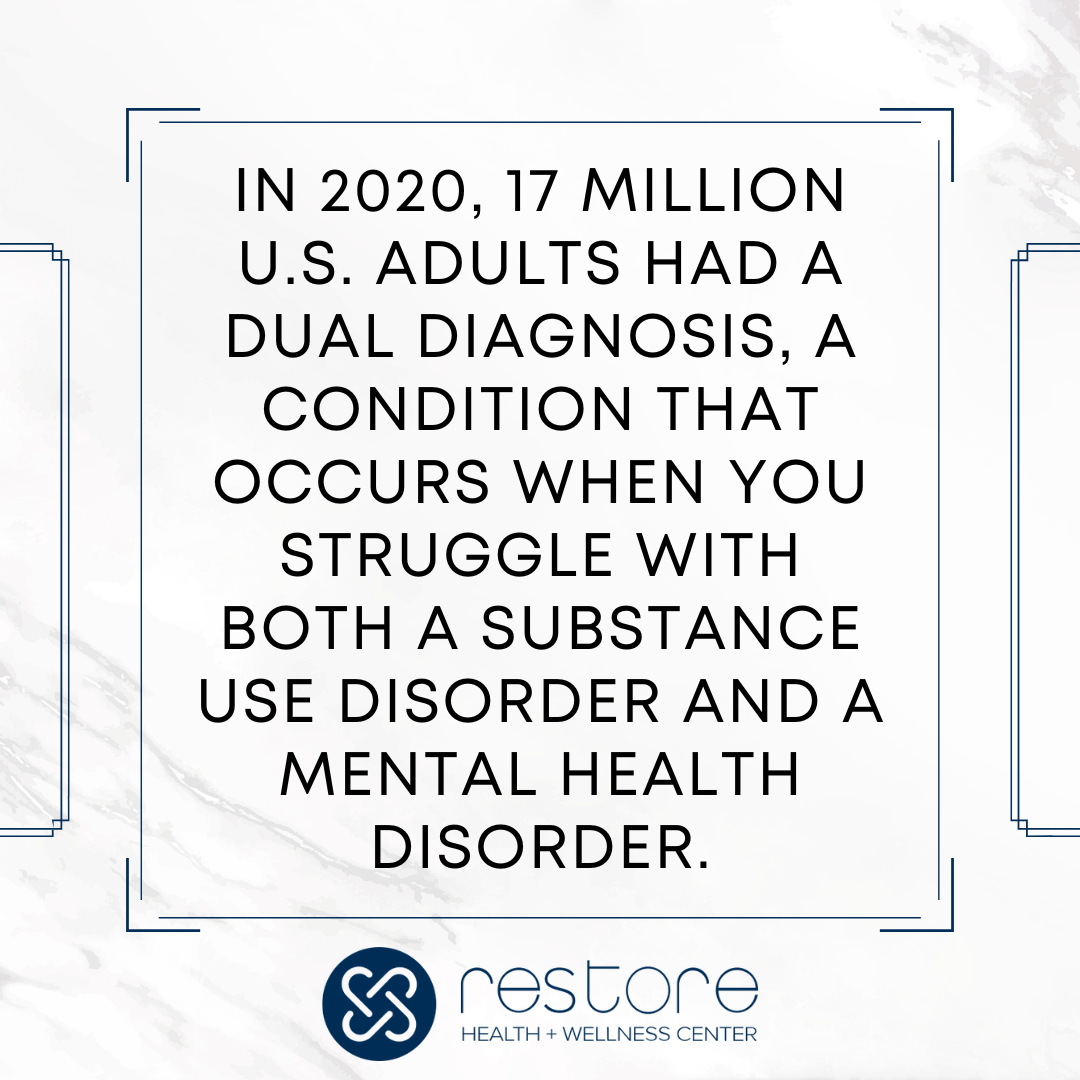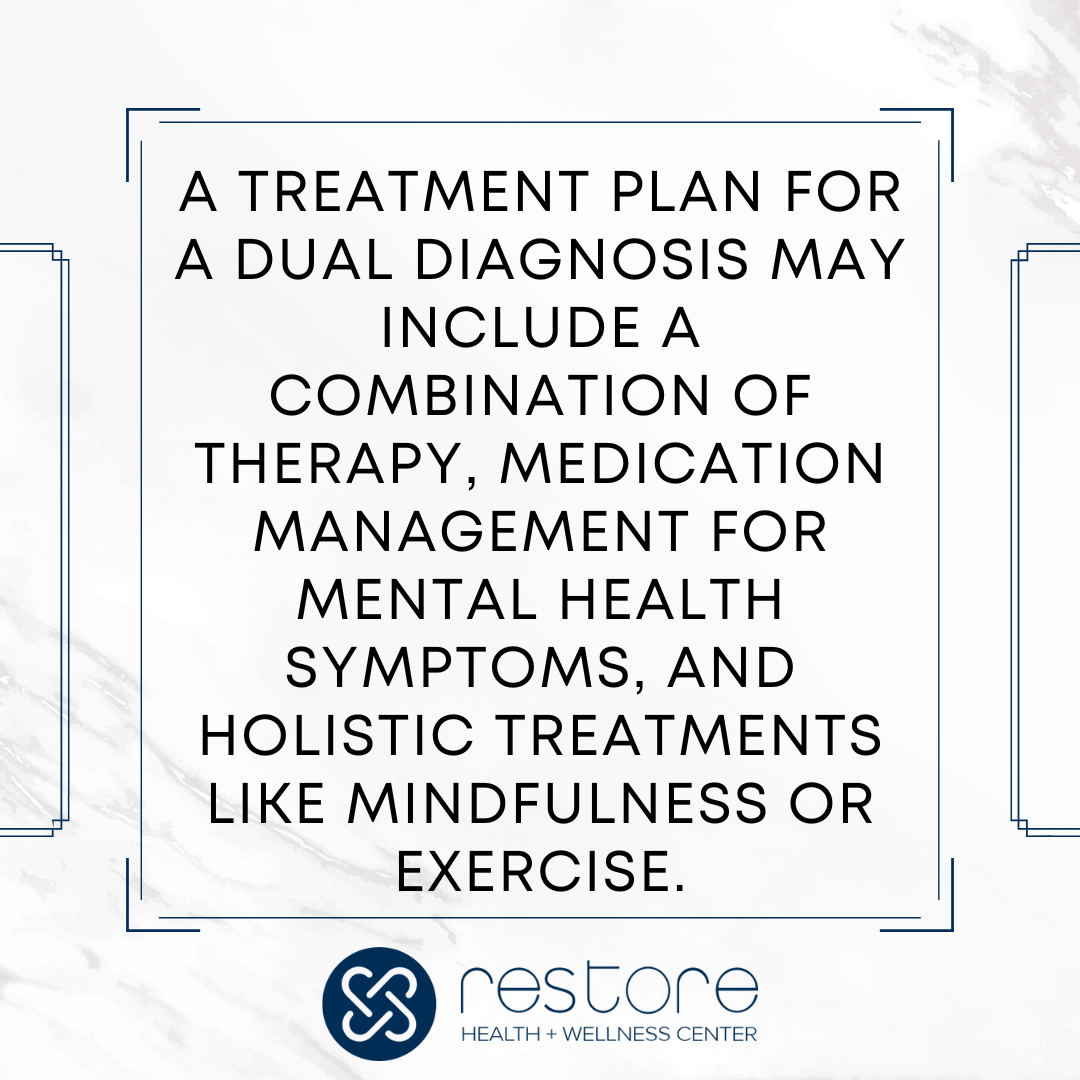
Sometimes addiction hides a deeper issue: a mental health challenge that also needs attention. When substance use and a mental illness co-exist, it’s called dual diagnosis. And understanding how to treat dual diagnosis patients is crucial, as both conditions have strong ties and they both require a comprehensive approach.
Addressing only one aspect can lead to relapse or ineffective treatment. This is why a combined treatment approach is essential. By recognizing the complexity of dual diagnosis, healthcare providers can tailor interventions that will usher in long-lasting recovery.
Want to learn more about this condition? This blog will explore the best strategies for treating dual diagnosis patients, underscoring the importance of integrated care.

What Is Dual Diagnosis?
In 2020, 17 million U.S. adults had a dual diagnosis, a condition that occurs when you struggle with both a substance use disorder and a mental health disorder. Because these issues are deeply interconnected, treating them separately can lead to ineffective recovery and an increased risk of relapse.
Common examples of dual diagnosis include alcohol use and anxiety, where you may rely on alcohol to self-medicate anxious feelings. Another frequent combination is PTSD and opioid addiction, as some people turn to opioids to numb the emotional distress caused by past trauma. Depression and stimulant abuse, bipolar disorder and cocaine use, and schizophrenia with cannabis dependence are also well-documented dual-diagnosis cases.
Recognizing the Signs of Dual Diagnosis
As with other conditions, identifying dual diagnosis early is crucial for effective treatment and long-term recovery. Since mental health disorders and substance use disorders often fuel each other, recognizing the warning signs can be utterly beneficial. Here’s what you should watch out for:
- Worsening mental health despite sobriety efforts
- Frequent relapse
- Self-medicating behavior
- Increased isolation
- Unstable mood or behavior (e.g., sudden mood swings, irrational decision-making)
- Neglecting responsibilities (i.e., at work, school, or daily life)
The sooner you receive integrated care that addresses both mental health and substance use disorder, the better your chances of long-term recovery. Keep in mind: Knowing how to treat dual diagnosis patients starts with proper assessment and a comprehensive treatment plan that considers both conditions.
Your family and loved ones have a role to play in recognizing the aforementioned signs early. This is because they are the very people who often notice behavioral changes before you do. Additionally, they are vital in encouraging treatment, offering support, and helping the person connect with professional care.

Challenges in Treating Dual Diagnosis
Treating dual diagnosis presents unique challenges. It’s more than just about searching for “drug treatment programs near me” and choosing the first available or convenient option. At the end of the day, finding the right comprehensive care program is key.
These challenges highlight the importance of choosing the right treatment approach.
The Cycle of Addiction and Mental Health Issues
If you struggle with anxiety, depression, or other mental health issues, you might turn to substances for relief. But instead of helping, drugs and alcohol often make symptoms worse, creating a cycle that’s hard to escape. Substance use can also trigger new mental health issues, making recovery even more challenging.
Misdiagnosis and Lack of Proper Treatment
Many treatment programs focus only on addiction or mental health, missing the full picture. If only one condition is treated, relapse is likely. Real progress happens when healthcare experts address both issues together.
Emotional and Logistical Challenges
Dual diagnosis affects not just you but also your loved ones. You may feel frustrated and exhausted, while family members struggle to find the right support. Finding drug treatment programs that offer integrated care can be difficult, but the right approach makes recovery possible.

Key Steps in Treating Dual Diagnosis
As you learned, understanding how to treat dual diagnosis patients requires a comprehensive approach that addresses both mental health and substance use disorders simultaneously. Here are the essential steps in an effective treatment plan:
Step 1: Comprehensive Assessment
Before treatment begins, a thorough evaluation is necessary to identify both the substance use disorder and any underlying mental health conditions. This assessment helps healthcare providers understand the full scope of a patient’s challenges and develop a treatment plan that targets both issues.
Step 2: Integrated Treatment Plan
Once all conditions are identified, your doctor will create a personalized integrated treatment plan. A treatment plan for a dual diagnosis may include a combination of therapy, medication management for mental health symptoms, and holistic treatments like mindfulness or exercise.
Step 3: Continuity of Care for Long-Term Success
Recovery doesn’t end after initial treatment. Long-term success depends on ongoing support, including outpatient therapy, medication management, sober living environments, and relapse prevention strategies. Ensuring continuity of care helps prevent setbacks and promotes lasting recovery.
Essential Components of Care
Treating dual diagnosis requires a comprehensive, multi-faceted approach. From therapy to medication and strong support systems, each component plays a crucial role in recovery.
Therapeutic Interventions
Evidence-based therapies are essential for helping individuals manage both their mental health and substance use disorders. Some of the most effective approaches include:
- Cognitive-Behavioral Therapy (CBT). It helps you identify negative thought patterns and develop healthier coping strategies.
- Trauma Therapy. It addresses past traumatic experiences that may contribute to substance use and mental health challenges.
- Dialectical Behavior Therapy (DBT). It focuses on emotional regulation and distress tolerance.
Medication Management
In some cases, medication is necessary to stabilize mental health conditions and support long-term recovery. For instance, for those seeking opioid addiction treatment, combining therapy with medication-assisted treatment (MAT) can significantly improve recovery outcomes.
Generally, medications like antidepressants, mood stabilizers, and antipsychotics help manage mental health symptoms, while MAT can support recovery by reducing cravings and withdrawal symptoms for those with substance use disorders. A well-monitored medication plan ensures both conditions are treated effectively.

Conclusion
Understanding how to treat dual diagnosis patients means recognizing that addiction and mental health disorders are deeply connected and require a comprehensive treatment approach. Addressing only one condition while ignoring the other can lead to relapse and incomplete recovery.
Effective recovery starts with the right programs that offer integrated care, combining therapy, medication management, and strong support systems. Finding specialized drug addiction facilities near me is key to getting the care you need to manage both conditions and build a foundation for long-term stability.
Facing a dual diagnosis? We at Restore Center can help. We offer tailored treatment programs to help you overcome your addiction and mental health issues. Reach out today!












